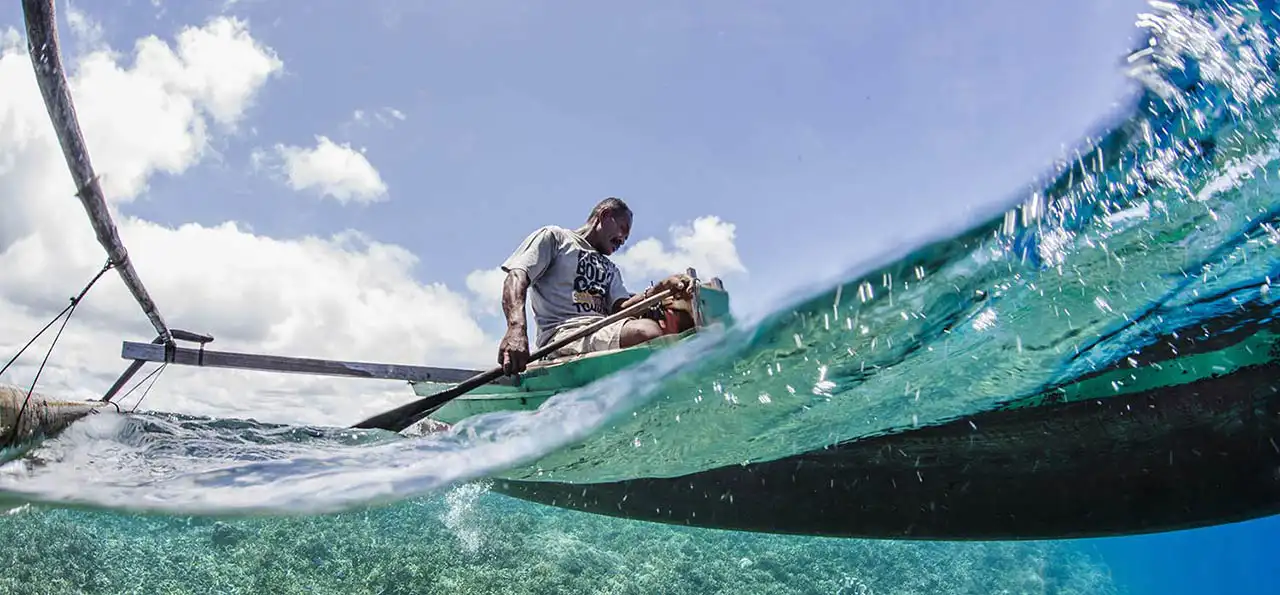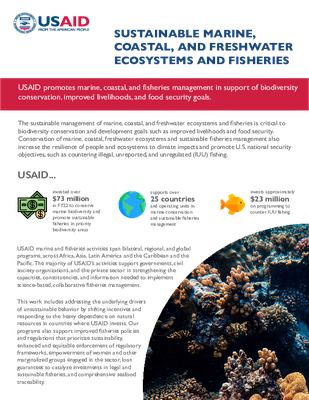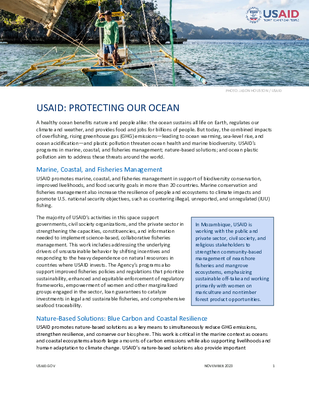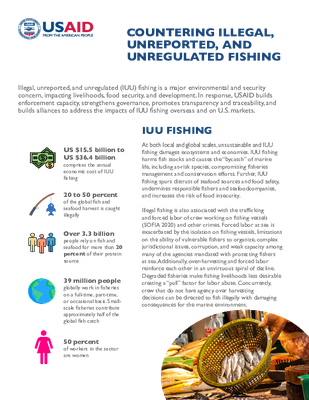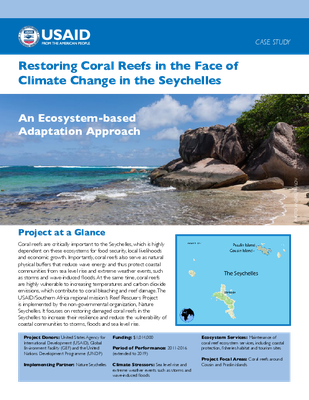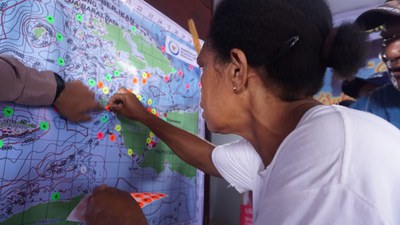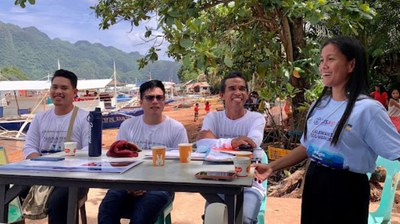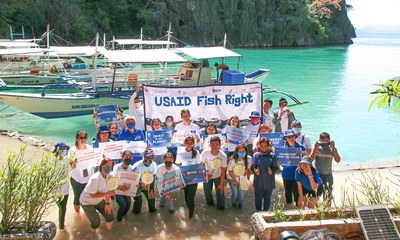The world depends on fisheries: approximately 3.3 billion people rely on fish for a large part of their diets, and the nutrients from fish provide important dietary diversity in low-income countries. The global export value of fish from developing countries is more than rice, sugar, and coffee combined. In FY22, USAID invested more than $73 million in over 25 countries and operating units to promote sustainable fisheries and conserve marine biodiversity. The Agency focuses on strengthening resource governance and management, combating illegal fishing, promoting seafood traceability, improving food security and inclusive development, empowering women, enhancing resilience, and diversifying financial strategies for achieving durable change.
For more information, please see our factsheets on USAID's marine conservation, IUU fishing, and ocean conservation efforts.
Fisheries Matter
Did you know that fisheries products are the world's most widely traded foods, supporting a $500 billion global economy, and that fishing is the largest extractive use of wildlife in the world?
Billions of people around the world in developing countries depend upon wild fish for a substantial part of their animal protein and nutrition. This video explores why "Fisheries Matter" to global and local food security and what actions can be taken to improve and sustain fisheries productivity and the biodiversity upon which it depends.
Projects
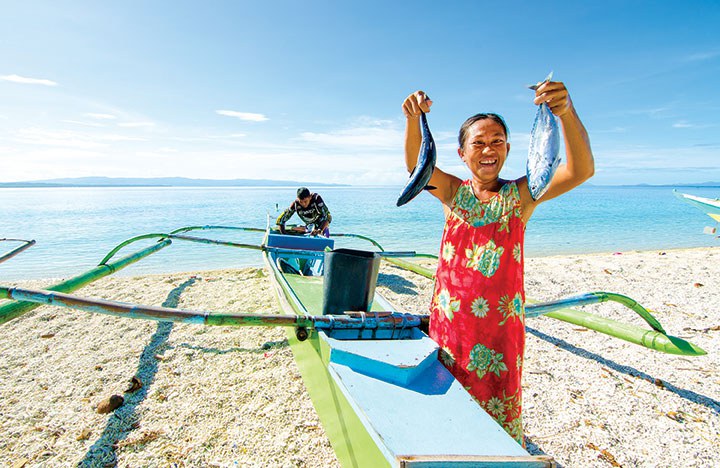
Seafood Alliance for Legality and Traceability
The Seafood Alliance for Legality and Traceability (SALT) is a global alliance for knowledge exchange and action to promote legal and sustainable fisheries through improved transparency in seafood supply chains. SALT brings together the seafood industry, governments and nongovernmental organizations (NGOs) to accelerate learning and to support collaboration on innovative solutions for legal and sustainable seafood, with a particular focus on traceability, the ability to track the movement of seafood through supply chains.
Learn more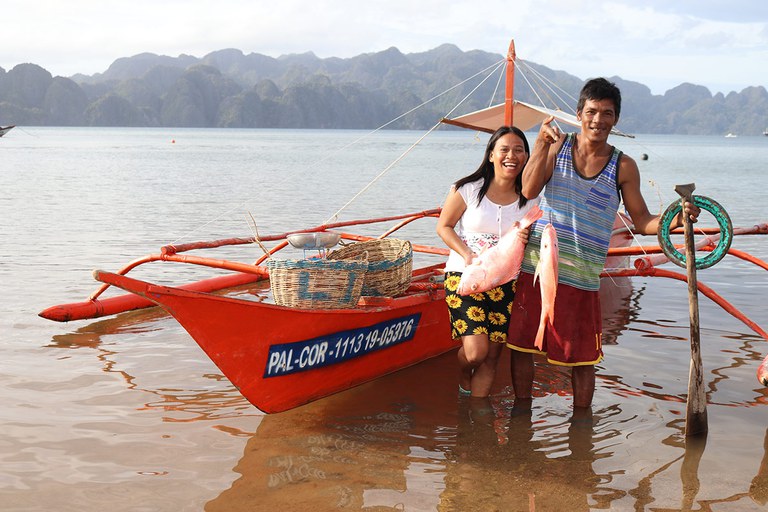
Fish Right
The Fish Right Program is a partnership between the Government of the Philippines and USAID to improve marine biodiversity and the fisheries sector in three key ecological areas. Fish Right will foster substantial change in fisheries management and climate resilience to achieve a ten-percent increase in fish biomass in Calamianes, Southern Negros, and Visayan Seas. Through improved management of fisheries, mangroves, and other coastal resources, the program will also increase resilience and improve livelihoods among households in the 39 municipalities of these marine key biodiversity areas.
Learn more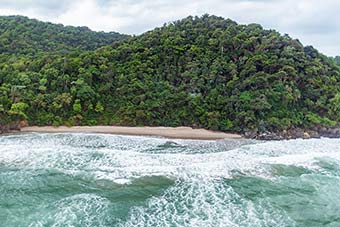
Conserving Coastal Ecosystems
Honduras’ coastal and marine ecosystems play a vital role in the country’s ability to adapt to and mitigate the effects of climate change. The Conserving Coastal Ecosystems (CCE) Activity is a five-year project (2022–2027) that will improve coastal resource management to protect biodiversity, improve climate change adaptation and mitigation, and promote inclusive and sustainable economic growth, generating resilience in local communities in Honduras. The CCE Activity is led by the International Union for the Conservation of Nature (IUCN) in collaboration with the Foundation for Rural Business Development.
Learn more Collaborative Learning GroupMarine Conservation
Collaborative Learning GroupMarine Conservation
and Sustainable Fisheries
The Marine Conservation and Sustainable Fisheries community of practice supports USAID’s programming through peer-to-peer sharing and cross-Mission learning. The group shares activity-level situation models and results chains and reports and webinars on key learning topics, such as private sector engagement and the influence of China on fisheries.
Stories
-
Oct 22, 2024
Fishing for Solutions: Data-driven Pathways to Sustainable Fisheries in Indonesia
Indonesia, which stretches across more than 17,000 islands, is renowned for its rich marine biodiversity. The country is a major consumer and exporter of seafood products that provide nutritional and socio-economic benefits to more than 3 million fishers, 85 percent of whom are small-scale fishers. Yet Indonesia’s small-scale fishers face… -
Nov 17, 2023
At USAID Learning Event in the Philippines, Communities and Partners Celebrate Journey Toward Sustainable Fisheries
The USAID Fish Right Program promotes sustainable and resilient fisheries in the Philippines. The program builds on long-standing efforts by local communities and national, regional, and local governments to conserve biodiversity across the country, including in the Calamian Islands (also called the Calamianes). -
Jun 07, 2022
IUU, Climate Change & Geopolitics: A Triple Threat to Livelihoods in the Philippines
It doesn’t take long to see the deep interconnectedness of nature and community in the Calamianes Islands in the Philippines. With countless fishing boats bobbing in the waves, homes nestled next to expansive mangrove forests, and dinner tables filled with fresh fish, it is obvious how important the natural world…


